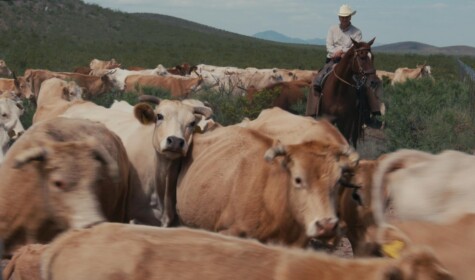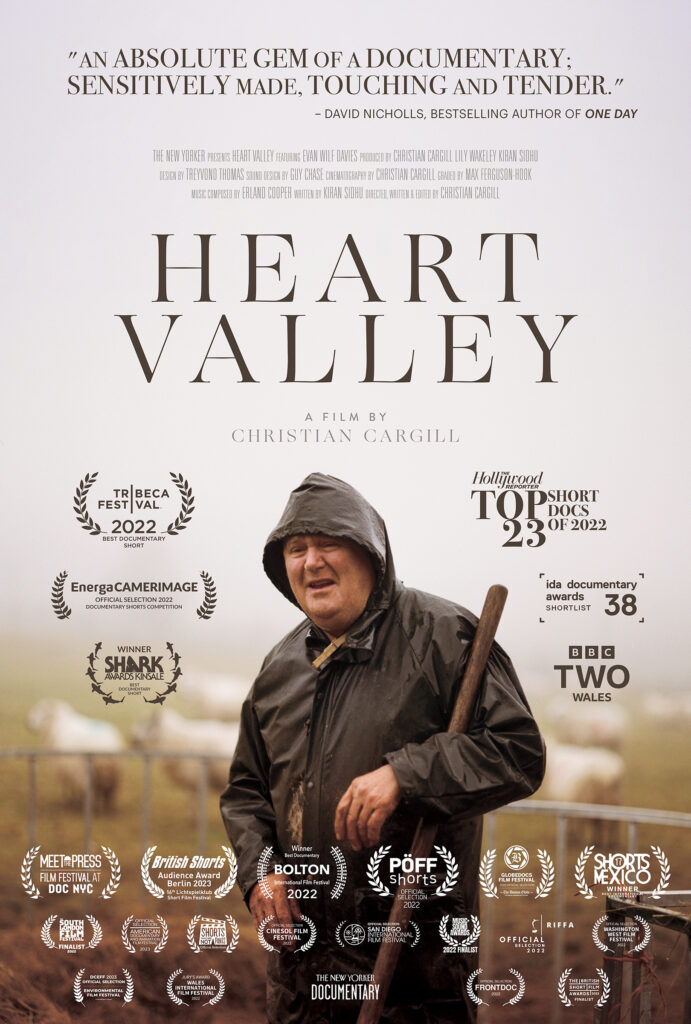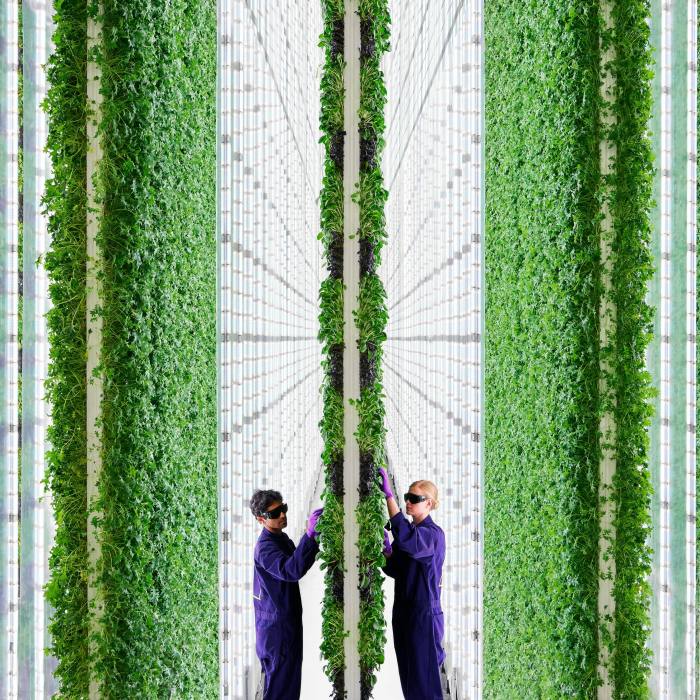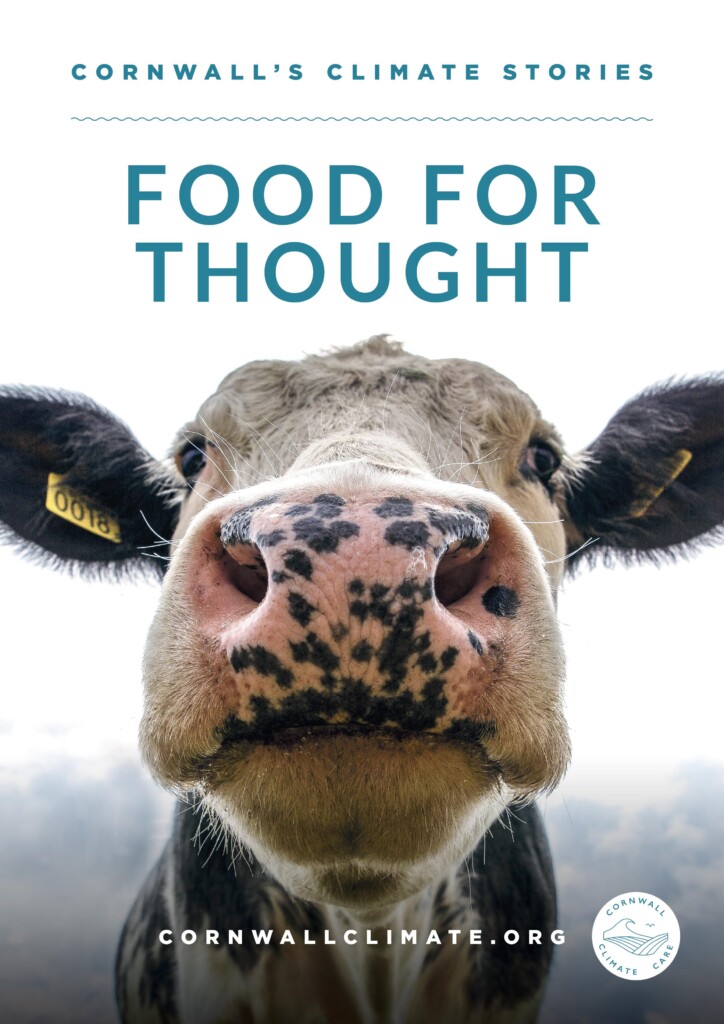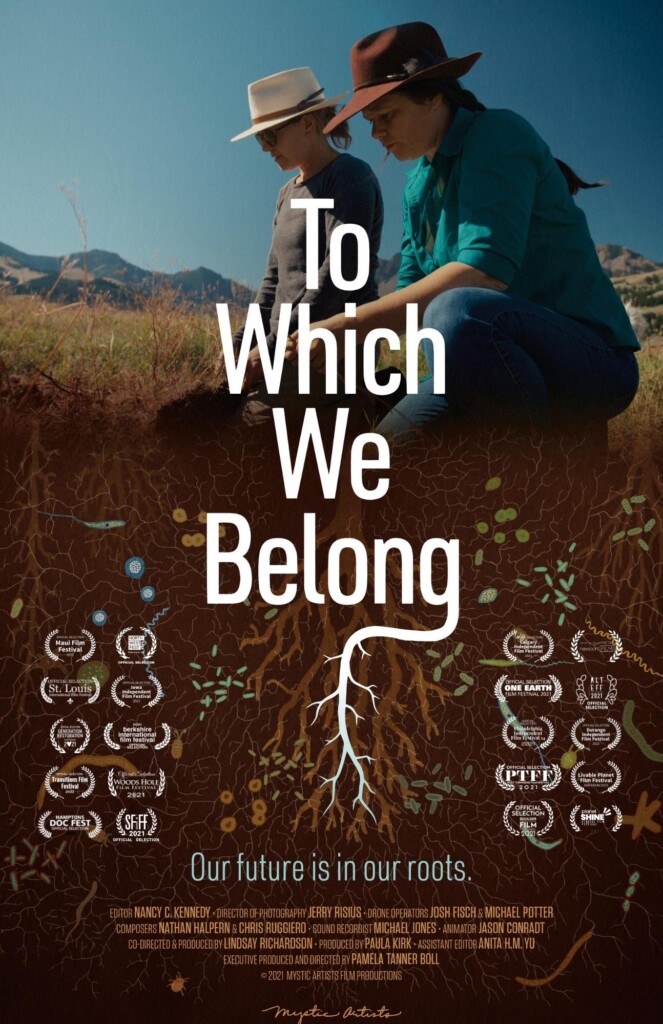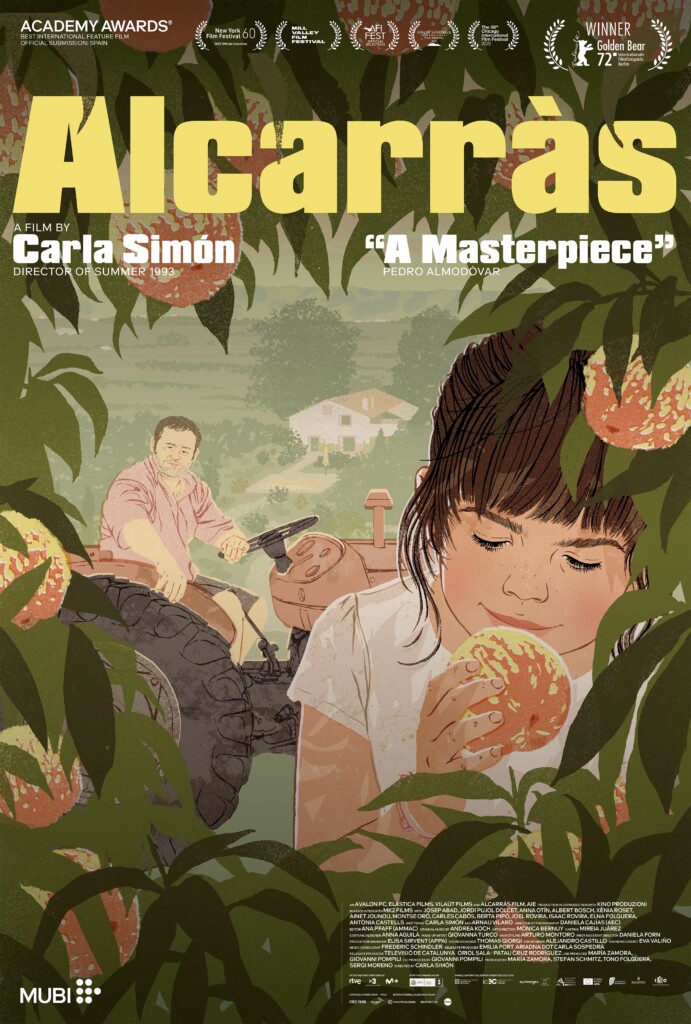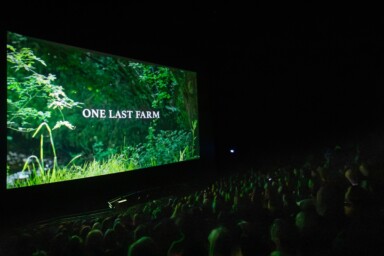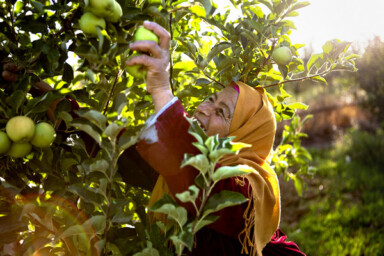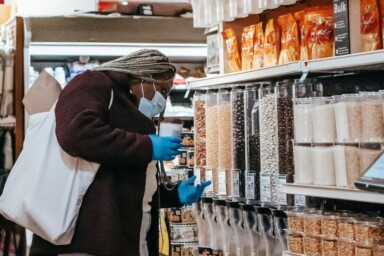Avoid the never-ending scroll on streaming platforms and instead refer to our list of recommended food and farming films, especially selected, watched and reviewed by the SFT team for your viewing pleasure.
A Shepherd’s Life Lessons / Heart Valley
Director: Christian Cargill
Where to watch: The New Yorker’s YouTube channel.
This beautiful and poignant short film is a reminder to all of us who rush about in the world, of what it means to be in a place, to know it, to be a part of it, to commune with it and all it bears.
Wilf is 73 and still tending his sheep alone on the land where he lives. His life is contained within ‘Heart Valley’, except for the weekly trip to the supermarket. He eats the same dinner – “fish, onions, baked beans and egg” – and takes a walk every evening, and in between he looks after the sheep. He has been born and grown in the Valley and his wish from when he was a small boy, is that he wanted his own farm.
He says, “My sheep enjoy having plenty of land underneath their feet; they don’t want to be locked in a paddock,” a sentiment that clearly pertains to him as much as to his sheep.
He sees the place is changing, with the rich coming to buy up farms and the small community that used to be there falling away – the pub, the post office and the price of wool are all in decline.
“I like to be present, polite and always helping somebody,” says Wilf. It’s a life of solitude but also of grace and happiness. Wilf is thankful for what it provides for him, but he knows the world is changing before his eyes.
Reinventing Farming and Food Post-globalisation
Director: Rana Foroohar
Where to watch: Financial Times’ YouTube channel.
Foroohar explores the impacts of globalisation and what it has done to the food system. The damage is never more apparent than in the United States. Foroohar grew up in the Midwest heartland of Indiana where the industrial food system was born. She explores the transformation of farming, especially in this region which is dominated by corn, soy and wheat production, and how smaller-scale farmers have been pushed out as large corporations take increasing control over the land.
Efficiency is key to globalisation, but it is arguable whether this has been a good thing. It’s certainly of value to those at the top benefitting financially but this hasn’t really served the people struggling at the bottom, especially farmers in this case. As one farmer says, “The way these large corporations, they control what you plant, when you plant, and what you get paid. Basically, that puts them in charge of everything.”
The film digs deep into what is so wrong about globalisation which is doing almost everyone no help at all. Foroohar argues, “…you’ve got this system, where these globalised, very highly ‘efficient’ supply chains are enriching Wall Street but starving Main Street and driving small farmers out of business.” As President Joe Biden comments in the film, “Capitalism without competition isn’t capitalism, it’s exploitation.”
It is the rise of neo-liberalism that is now breaking the farmer’s back. So, the question that lingers in all of this is: can we turn the ship around and what would that look like?
Cornwall Climate Stories: Food for Thought
Director: Bryony Stokes; commissioned by Cornwall Climate Care
Where to watch: Cornwall Climate Care’s website.
Cornwall Climate Stories is a thoughtful series of short documentaries made by Cornwall Climate Care that looks at the issues Cornwall faces in the future of climate change. Food for Thought focuses, as you might expect, on food and farming and its impact on climate. The film carefully considers how damaging food production can be, but also recognises the ways in which farming can help to mitigate climate change and be a force for good in the food system.
The film takes a grounded perspective on ruminants and the important role that they have in sequestering carbon in the soil, but it also acknowledges that there has been much practice that has not been sound, from the outbreak of BSE to poor manure management leading to the pollution of waterways and the greenhouse gas emissions of cows kept indoors alongside the global production of soya to feed livestock which has led to immense global deforestation.
Taking care of our soils and understanding good soil health is the most critical step towards transforming food production from something damaging to something that truly nourishes. In Cornwall, the Farm Carbon Toolkit has become a valuable resource for farmers in developing a better understanding of their soils – out of this understanding more sustainable farming results. The recognition that soil health is critical in the transition to a sustainable food system is spreading among a wide swathe of farmers. Creating a diversity of plants and techniques like mob grazing, along with other methods that fall under the umbrella of ‘regenerative’ farming, is transforming practice on many Cornish farms.
The film unravels some of the issues that have driven our present-day problems, and points to a way forward that draws on the time-honoured practices of mixed rotational farming, eschewing extractive industrial food production for a more hopeful, sustainable future.
To Which We Belong
Director: Pamela Tanner Boll
Where to watch: Rent from £1.49 on Amazon Prime/Apple TV/iTunes.
Industrial agriculture may produce higher yields, but the quality and nutrition levels of our food, as well as nature, animals and the state of our planet, have suffered as a result of these intensive practices. To Which We Belong follows nine farms, from Montana to Maasai Mara, ranging in size from 1 to 30,000 acres and in what they each produce – from grass-fed beef and cheese to kelp. But what ties them altogether is how they farm: regeneratively.
Soil takes centre stage in this documentary, pinned as the solution right under our feet to many of the climate extremes we currently face: “if we optimize the life under the ground, we’ll optimize life above ground,” claims David Perry, one of the documentary’s Ag-Tech contributors.
Many of the farms we see in the documentary are family affairs, which makes for a wholesome watch. Husband and wife, Tarquin and Lippa Wood, started the Enonkishu Conservancy in Kenya in 2013, a conservation project whereby the local community are also heavily involved in its operation. Then there’s the James Ranch in Colorado, originally bought by Dave and Kay James, who dreamt of raising a large family in a rural setting. The ranch is now co-owned by each of their five children who manage different aspects of the farm, including cheesemaking, growing sugar snap peas – “the best in Colorado” – raising cattle, chickens and running the ranch’s restaurant.
Through a combination of beautiful, crisp drone shots, close-ups of their farm practices and interviews portraying the inspiring story of each farmer along with colourful animations which break down the microbiology of soil and carbon emission data, this documentary perfectly encapsulates how a regenerative farm system exists as a whole, each element working in harmony to provide for the climate, nature and people.
Alcarràs
Director: Carla Simón
Where to watch: Available to watch on Mubi.
Alcarràs is an emotional and empathetic portrayal of the challenges facing fruit-farming families in rural Spain.
The concept of the pueblo is well-known in many parts of Europe – the rural, ancestral family home to which children return during summer holidays to visit grandparents – and this idea is central to the film’s narrative. The Solé family have been harvesting peaches in the village of Alcarràs for decades, and for each of them, the land represents far more than simply a source of income – it’s intimately tied to their culture, identity and history, and their love of the land is evident from the outset of the film.
There are moments of happiness and laughter as the family enjoy meals together and a shared sense of comradery as the harvest gets into full swing. But the film doesn’t shy away from the reality of what it means to farm in such a harsh landscape, with dry, hot summers and delicate fruits that must be harvested quickly. The economic challenges are also front and centre, with the Solé family joining farmers from across the region to protest the unfair market prices. This sense of tension and urgency is compounded by the situation the family suddenly finds themselves in one summer.
“Peaches or panels, there’s no difference,” argues landowner Pinyol as he announces he is selling the land on which Quimet and his family have grown peaches for generations. Solar panels will replace the ancient fruit trees and Quimet is offered an ultimatum: eviction or a career-change. “I’m a farmer, not a solar panel operator,” exclaims Quimet. “I don’t want to learn a new skill at my age!” This explosive interaction between Pinyol and Quimet cuts right to the heart of the film’s tensions, highlighting how ‘modern’ ways of thinking and ‘progress’ can be pitted against traditional practice, culture and community.
Alcarràs forces us to think about the unintended consequences of our collective striving for greener, cleaner energy sources, and encourages us to have consideration and empathy for the individuals whose lives are impacted by such changes in land-use.
Featured image courtesy of Mystic Artists from the film To Which We Belong, of Alejandro Carillo, taken at Las Damas Ranch, Chihuahua, Mexico.
